January 2024, Volume 35, Issue 1
Portrait of an iPhone Statesman
A review of The Showman: Inside the Invasion That Shook the World and Made a Leader of Volodymyr Zelensky, by Simon Shuster.
January 2024, Volume 35, Issue 1
A review of The Showman: Inside the Invasion That Shook the World and Made a Leader of Volodymyr Zelensky, by Simon Shuster.
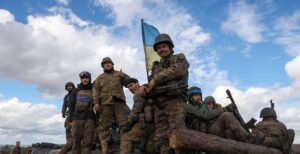
October 2022, Volume 33, Issue 4
Will Russia’s war tip the Kremlin even further toward tyranny while fortifying Ukraine’s democracy? That will depend on Vladimir Putin and Volodymyr Zelensky as much as on the course of the war itself.
July 2022, Volume 33, Issue 3
The more determined democracies are to avoid war, the greater the risk that autocracies will wage it.
July 2022, Volume 33, Issue 3
Why did Russia invade Ukraine? And why are Russian forces fighting so poorly? The internal logic of its personalist dictatorship is to blame.
July 2022, Volume 33, Issue 3
The first two months of the war alone turned the Russian clock back decades, undoing thirty years of post-Soviet economic gains and reducing the country to an international pariah state.
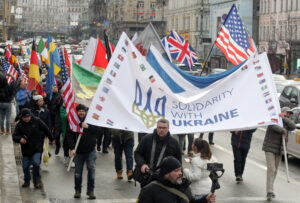

April 2022, Volume 33, Issue 2
Forget his excuses. Russia’s autocrat doesn’t worry about NATO. What terrifies him is the prospect of a flourishing Ukrainian democracy.
April 2021, Volume 32, Issue 2
The year 2020 saw the global weakening of democratic norms reinforced by authoritarian influence campaigns, crackdowns on protest movements, and the use and abuse of new powers adopted in the name of responding to the covid-19 pandemic.
January 2020, Volume 31, Issue 1
Lacking any ideas for shoring up Russian society, Putin has settled on picking a fight with Ukraine.
July 2019, Volume 30, Issue 3
Within Ukraine, Russia’s 2014 invasion has generated unprecedented pressures to impose restrictions on speech. While international norms allow some censorship during wartime, some of Ukraine’s new media and cultural policies raise risks not only for its democracy, but for its security as well.
April 2014, Volume 25, Issue 2
With the defeat of the Tamil Tigers in a 26-year civil war, Sri Lanka had a chance for genuine reconciliation, but that chance is being squandered by the government of President Mahinda Rajapaksa.
October 2009, Volume 20, Issue 4
A review of Wars, Guns, and Votes: Democracy in Dangerous Places by Paul Collier.

October 2008, Volume 19, Issue 4
A domestic political crisis began brewing in Georgia long before the current conflict with Russia. Since the Rose Revolution, the country has been troubled by flawed elections, a “superpresidency,” and a malleable constitution.
April 2006, Volume 17, Issue 2
Despite hopes that 2005 would see an end to hostilities between rebels and government forces, neither disarmament nor elections took place. How did this once-prosperous country end up on the verge of anarchy and disaster?

April 2003, Volume 14, Issue 2
The claim that ethnic minorities have a moral and legal right to secede from states is a dangerous fiction with perilous implications for divided societies.
April 2001, Volume 12, Issue 2
Despite recent progress in the government’s negotiations with rebel groups, Colombia’s problems remain acute: continued violence, growing human rights abuses, severe income inequality, and a depressed economy.
April 1998, Volume 9, Issue 2
Read the full essay here.
January 1997, Volume 8, Issue 1
Read the full essay here.
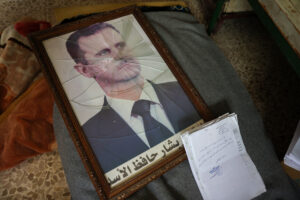
The brutal regime of Syria’s Bashar al-Assad fell in a week. Syrians have been preparing for this moment for years.
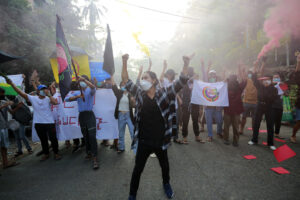
Burma’s democratic resistance has made impressive gains against the country’s corrupt junta. But they need help from the world’s democracies if they are to succeed and create an enduring peace.
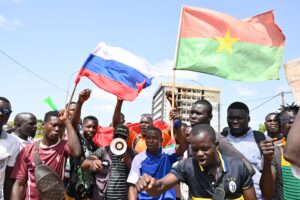
Ten years after the revolution, the lessons for protecting a budding democracy and guarding against violent extremism are clear.
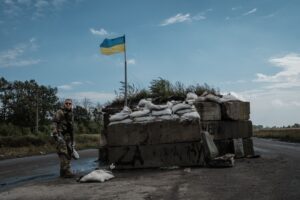
Putin doesn’t care how many of his troops die. He is looking to win a war of attrition. On the second anniversary of Russia’s invasion, Ukraine needs the West’s help—and it needs it now.
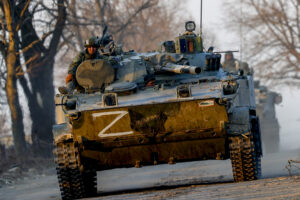
Russia’s invasion of Ukraine isn’t just another land grab. It’s an attempt to recolonize lost empire, and threatens to return us to the age of conquest.
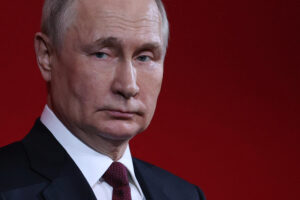
For twenty years, the Russian autocrat enjoyed a string of good fortune in coming to power and cementing his rule. He had raised Russia’s standing in the world. Then he invaded Ukraine.

His military didn’t just fail. Ordinary Ukrainians, Russians, and people across the globe are creatively and nonviolently protesting Putin’s war on Ukraine, and they are making a difference.
In 2022, we began publishing shorter, exclusively online pieces. No topic mattered more to you than Russia’s disastrous war in Ukraine. We also published essays from the sharpest minds on protests in China and Iran, instability in Pakistan, and more.
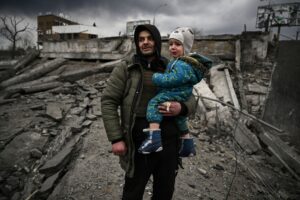
Most are Russian speakers from the east, and once harbored sympathies for Moscow. If the country embraces them, they could form the bedrock of a free and open Ukrainian society.
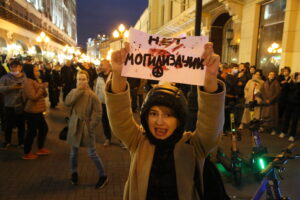
The Kremlin’s order to call up Russians to fight in Ukraine risks massive protests. It’s the riskiest decision of Putin’s rule, and it could lead to his undoing.
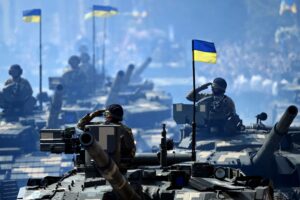
The country’s military is advancing on the battlefield. If Ukraine defeats Russia’s massive army, the ripple effects will be felt across the globe.
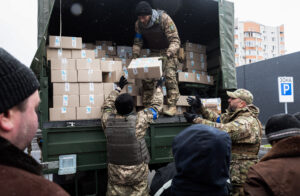
Afghanistan taught us that a firehose of unaccountable aid can destroy a country’s democratic future. In Ukraine, we are making the same mistake all over again.
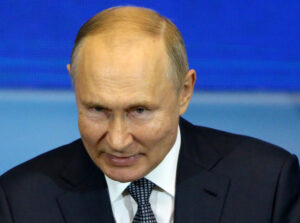
The more determined democracies are to avoid war, the greater the risk that autocracies will wage it.
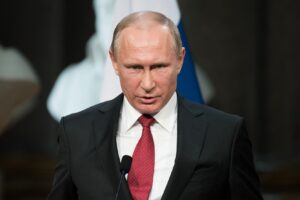
In a matter of weeks, the Russian autocrat has erased his country’s prosperity in a feckless attempt to rebuild a doomed empire.
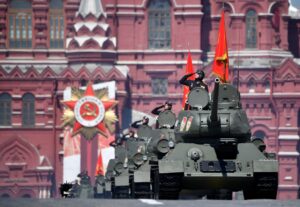
How does a Russian autocrat celebrate Victory Day while losing a war? Expect lies, myths, and propaganda.
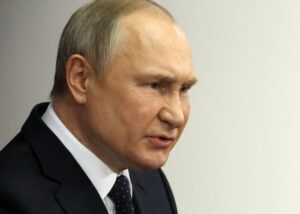
Why we must tackle the threat posed by Putin and his authoritarianism head on.
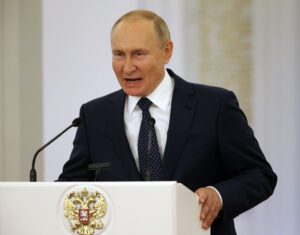
Russia’s autocrat may be weakened, but his grip on power is greater than many people realize.
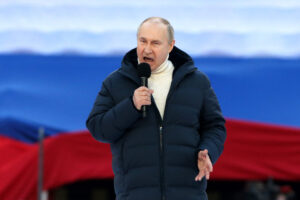
The system that Russia’s autocrat built wasn’t designed to survive the pressures it is now facing.
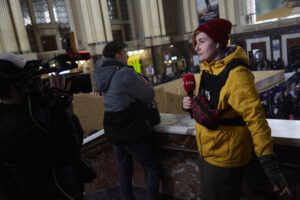
Russian rockets are targeting Ukrainian journalists’ ability to report the news, but the country’s media is finding new ways to stay on the air.
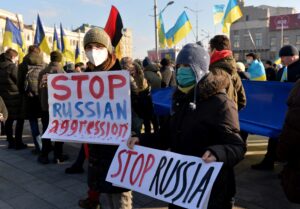
If the West forces Kyiv to accept Putin’s diplomatic terms, he will have succeeded without firing a shot.